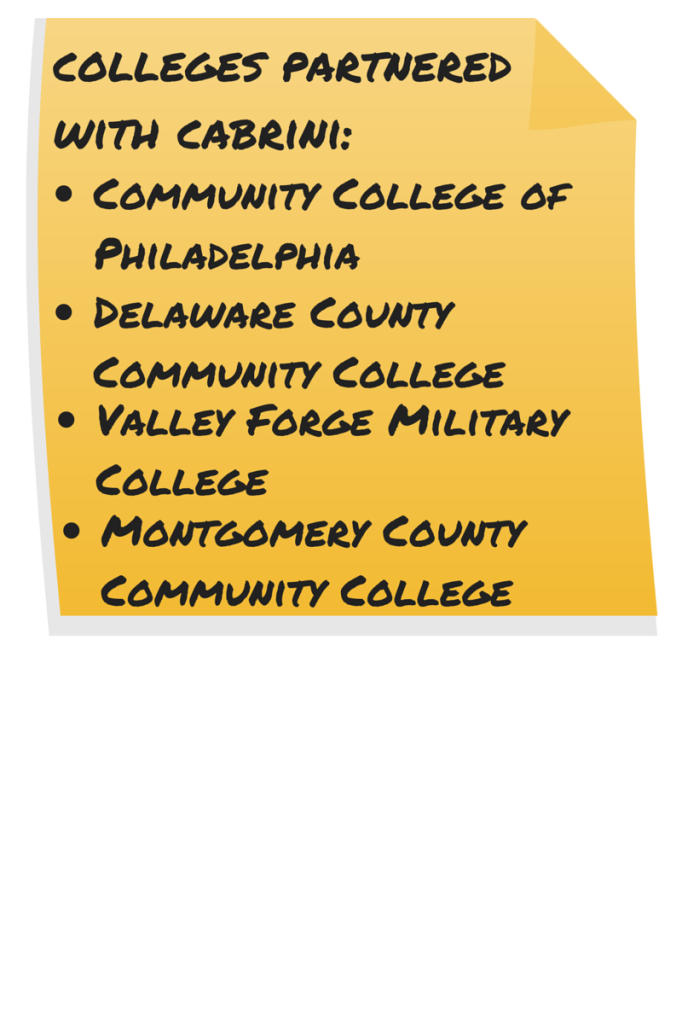
At the beginning of January, President Barack Obama proposed a government program for tuition-free community college, granting students the access to two free years at community college. This program would benefit roughly 9 million students every year, according to the White House blog.
“Forty percent of our college students choose community college,” Obama said in his State of the Union address Jan. 20. “You’ve got to earn it – you’ve got to keep your grades up and graduate on time.”
Students would have to maintain a minimum GPA of 2.5 a stay on track to graduate, according to the White House’s briefing room.
But what effect would a program like this have on students who would eventually be transferring over to a four-year college? No doubt this has gotten four-year colleges and universities thinking about next steps should this proposal be passed.
Cabrini already has partnerships with community colleges, which allow students to transfer credits with Community College of Philadelphia, Delaware County Community College, Valley Forge Military College and Montgomery County Community College. This means that Cabrini will accept general-education core courses from associate-degree courses and students will have to complete the ECG 300 and religious studies requirements.
In December, when Cabrini partnered with eight high schools and La Salle University, Dr. Donald Taylor, president, also discussed being open to having conversations with community colleges. One topic that could be of interest is designing a new program between Cabrini and a community college. This could allow a program to be offered on the community college campus for students to start there and then do the last two years’ completion at Cabrini.
Two-year articulation agreements and program-to-program agreements help students ensure that the credits that they earn in community college will transfer to a four-year college. Specifically, Cabrini is pursuing the Pennsylvania Department of Education to join Pennsylvania Transfer and Articulation Center.
“[The PA Trac] attracts transfer students to Cabrini and maps out a transferable credit plan,” Charles Spencer, director of transfer admissions, said.
This would allow students to view course catalogs and degrees that can transfer to participating colleges and universities. Spencer hopes to partner with PA Trac within the next month or two.
Of the concerns that many are expressing over Obama’s proposal is who will be responsible for proving funding to the program. “Federal funding will cover three-quarters of the average cost of community college,” according to the White House blog. The remaining costs are expected to come from the participating states.
In addition to his proposition for free community college, Obama also acknowledged those who are already feeling the effects of student debt. He hopes to work with Congress to alleviate the $1 trillion burden felt by Americans.
“I want to work with this Congress, to make sure Americans already burdened with student loans can reduce their monthly payments, so that student debt doesn’t derail anyone’s dreams,” Obama said in his State of the Union address.
Spencer thinks there are many positives in the proposal–keeping students in school and not just working after they graduate high school as well as the credits that can transfer over once a student transfers to Cabrini.
“They are going to see that all their credits transfer over,” Spencer said. “The majority of all the credits from a student that comes into Cabrini are going to transfer because there’s so many general electives in a major.”
A student who transferred to Cabrini from Montgomery County Community College sees both the positives and negatives of a proposal like this. “If the proposal had been in place it would have been less stressful for my parents and I financially with tuition, supplies, textbooks, etc.,” Carolyn Greenleaf, junior psychology major, said. “I would have been able to start saving money for Cabrini tuition- and I think that would be helpful for anyone because all four-year universities are more expensive than community college.”
Greenleaf thinks that offering community college would be beneficial for those who are struggling to pay tuition and those students that are not available for grants and student aid. “I think in one aspect this would be a great idea, so every student gets an opportunity for an education, which is extremely important,” Greenleaf said. “They would have one less barrier in their way, which I think for a lot of people, money is one of the first things that is considered in making such a big decision and commitment.”
She still wonders how it would be paid for and if some form of taxes would be raised.
According to National Student Clearinghouse, over 60 percent of students who transferred from community went on to receive a degree at a four-year college or university.
Of the incoming class, this spring, Cabrini had 21 students who transferred in, Spencer said.
“I think it’s good that Cabrini can plan with these program-to-program agreements and building community college relationships in the future to really help out with this if it doesn’t pass,” Spencer said.






